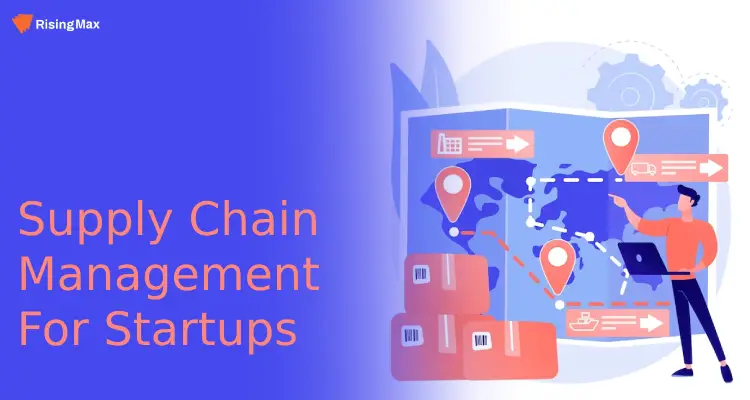Over the last few years, there has been a crucial push for supply chain management start-ups to the market. Giants like FedEx, UPS, and Deutsche Post DHL lead the industry. Famous players have holistic offerings that cover integrated services along the global supply chain. They act as integrators that amass resources, technologies, and capabilities to provide end-to-end solutions to customers. As a result, they house hundreds of thousands of employees globally and a significant market capitalization each.
Economies of scale, secured through enormous assets, have been their competitive advantage. Historically, this has typically raised huge new barriers to new faces in the industry. Now, this is varying. Latest technologies, enhancing connectivity levels, digitization, and industry convergence are disrupting the industry as emerging supply chain start-ups capitalize on these trends, including Internet-of-Things (IoT) and analytics. Their business model typically develops upon an asset-light, agile, and technology-driven infrastructure, permitting them to reach scale and grow exponentially with a lean setup and limited risk exposure.
Transportation start-up hotels and Uber platform AirBnB are examples of exponential growth that are not tied to the number of assets. This principle extends to supply chain management industries. Simultaneously, customer expectations are continuously rising; convenience is the key. The expectations include constant price optimization, faster delivery times, specific delivery windows, and flexibility in modes.
It drives demand for specialized and innovative supply chain solutions, especially in the medium-haul and urban delivery segments. Encouraging such solutions, explore everything about them in this post.
Looking for reliable supply chain management solutions? Let RisingMax be your powerful assistance in delivering the right solutions for your business operations and bringing a game-changing experience. Contact us now!Let’s dive in.
In today’s exceedingly competitive business era, new companies confront various challenges when effectively conveying items or administrations to their clients. It is where a successful supply chain management procedure becomes vital. Supply chain management envelops all the activities included within the stream of merchandise, administrations, information, and accounts, from the introductory sourcing of raw materials to the ultimate conveyance of the raw materials to the final delivery reaching the end users.
Why is Supply Chain Management (SCM) Essential for Start-ups?
Here are a few key reasons why supply chain management plays an essential part in the success of start-ups.
- Cost-efficiency: Start-ups often have restricted monetary assets, and enhancing the supply chain can help limit costs. Successful supply chain management permits new companies to streamline their working operations, decrease wastage, negotiate better pricing with suppliers, and improve general operational effectiveness, leading to cost savings.
- Customer Gratification: The supply chain directly affects client satisfaction. Effective SCMfor startups guarantees on-time delivery, precise arrangement satisfaction, and high-quality items or services, all contributing to positive customer experiences. Gratified customers are more likely to become repeat clients and recommend the start-up to others, enhancing business growth.
- Competitive Advantage: New companies require a unique selling proposition to stand out in a competitive market. An exalted supply chain can be a noteworthy differentiator. It empowers new businesses to offer quick delivery, better product availability, customized offerings, or prevalent benefits compared to their competitors, providing them a competitive edge.
- Adaptability: Start-ups often yearn to develop quickly and grow their operations. A well-managed supply chain encourages versatility. It ensures that as the demand for products or services increments, the start-up can proficiently handle higher volumes without compromising on quality or delivery timelines. Supply chain scalability permits new companies to seize development openings and adjust to changing showcase flow.
- Risk Mitigation: Supply chain disturbances can have a noteworthy effect on a start-up’s operations and reputation. Compelling supply chain management includes determining potential errors, executing possibility plans, and building vigorous connections with providers. By proactively overseeing dangers, new businesses can minimize the effects of unanticipated occasions such as supplier disruptions, natural disasters, or transportation delays.
- Development and Collaboration: A lively supply chain frequently includes collaboration with stakeholders, providers, coordination suppliers, and innovation accomplices. Such collaborations cultivate innovation, empower new businesses to access unused thoughts and advances, and showcase openings. Leveraging the skill of supply chain partners can help new businesses remain at the cutting edge of industry patterns and drive advancement inside their operations.
Transform your startup’s supply chain into a competitive advantage. Start implementing our proven tactics today!
Understand Supply Chain Firms and Business Models
Many companies leverage big cloud and data technologies for brokerage and analytical services. They gather rates and information from other logistics service providers and build transparency where there was little earlier. This aspect is true for the freight and transportation-related segments. Some start-ups supplement their traditional peers in metropolitan areas by only emphasizing the express delivery segment. These start-ups test and pilot ingenious delivery modes, such as autonomous robots, drones, or vehicles.
The supply chain segments with the largest asset needs—ocean/air and overland—still need to catch up with start-ups providing actual delivery capabilities.
The Continuous Flow Model
Designed for manufacturing businesses and industries that deliver consistently, this model is best for established brands with robust minimal variation and supply chain networks between buying orders. For instance, with a large customer base, Coca-Cola has the same demand with changing markets and seasons.
- Pros: Reliable for established commodity ventures
- Cons: Not applicable businesses having changing demands.
The Agile Model
This model wants businesses to have major elements: process alignment, virtual integration, market sensitivity, and a network base. These components work together to assist businesses in identifying tendencies and quickly developing products that best suit current market demand and customer requirement trends. It works well for businesses that need to develop custom products but need to have core products, like specialty wardrobe companies such as ZARA.
- Pros: Suitable for businesses that need to adapt to new trends
- Cons: Not helpful for businesses with a huge demand for the same products.
The Fast Chain Model
Businesses with products with a short lifespan need this model. It helps businesses that must change the product type they send often and deliver to the market before the product loses value. Examples include sporting or clothing goods firms like Adidas.
- Pros: Good for trendy and apparel brands
- Cons: Not reliable for businesses with established demands
The Efficient Chain Model
This model focuses on supply chain efficiency and works for businesses in highly competitive markets that must be highly effective in their supply chain logistics. This model computes inventory management and goods delivery by ensuring all machines and equipment work to create goods without unnecessary waste. For instance, General Mills sells products similar to its competitors and has a thin profit margin.
- Pros: Perfect for businesses that need to enhance efficiency in the manufacturing process.
- Cons: Not suitable for businesses that use time-consuming custom products and goods.
The Flexible Model
The flexible supply chain model accommodates peaks in customer demand over the year. It needs part segmentation, flexible planning, and stocking algorithms. This model is apparent in companies such as Office Depot, which experiences seasonal demand boosts for back-to-school shopping during the fall. It helps the company forecast upcoming demand and stock up inventory as required for these shifts in demand.
- Pros: Excellent for businesses that have seasonal peaks in demand
- Cons: Businesses with a steady demand must opt for something other than this model.
The Custom-Configured Model
This model is the custom-configured model, considered to be a combination of the continuous and agile flow models. It works best when there is a need for multiple project configurations during the assembly or production of distinct goods within the factory. It can help customers quickly get the required products while permitting them to customize them. For instance, the clothing manufacturer LL Bean has options for custom stitching and other customization alternatives for products like polo shirts and backpacks.
- Pros: Suitable for businesses offering custom goods
- Cons: Bad for companies with a high demand for similar products.
Maximize profitability and minimize waste with our supply chain management strategies tailored for startups. Dive in now!
Benefits of Supply Chain Management for Start-ups
Businesses developing a cost-efficient supply chain tactic can benefit from higher operational efficiency while staying competitive. Supply chain management helps enhance business performance, effectively invest capital, and reduce costs. Also, it puts the company in a better position to meet users’ demands.
Learn about the top five benefits of efficient supply chain management for start-ups.
- Enhance Your Operational Efficiency: Optimizing your supply chain management makes it easier to make the right decisions about running your business. You can access real-time insights and useful data outlining where your wasteful activities and ineffective processes occur. To avail of this benefit, execute effective supply chain management tactics to smooth out factory or shop floor bottlenecks. It can diminish waste, lower costs, and enhance overall operational efficiency.
- Gain Better Financial Visibility and Insights: One of the biggest advantages of supply chain management is providing greater visibility and control over your business. Supply chain management is like unfurling all the curtains and flicking on a light switch—only the room is your supply chain. Good supply chain management boosts the information flow along the supply chain so you can mitigate risks and react quickly to unexpected disruptions.
- Create Smarter Buying Decisions: Supply chain management facilitates better sourcing and buying raw components, materials, and finished goods. By managing your inventory requirements, replenishing goods is easy. Supply chain management resembles similar suppliers to define who provides the best deals, the best communication, and the shortest lead times.
- Lower Total Manufacturing Costs: Effective supply chains are essential to ensure manufacturers stay stocked on crude materials and are equipped to detour bottlenecks during production. Good supply chain management helps you avoid the risks linked with the bullwhip impact. This spectacle happens when small shifts in demand at the customer end of the supply chain result in massive swings in the production process.
- Decrease Inventory Carrying Costs and Storage Needs: It is challenging to balance holding enough stock to meet customer demands. Effective supply chain management helps you find that balance.
The Bottom Line
You are on the path to success by creating a rigid strategy, building strong relationships, streamlining operations, executing inventory management tactics, and increasing customer satisfaction.
Want to know more about how supply chain management helps you achieve your business goals? Contact RisingMax now!













